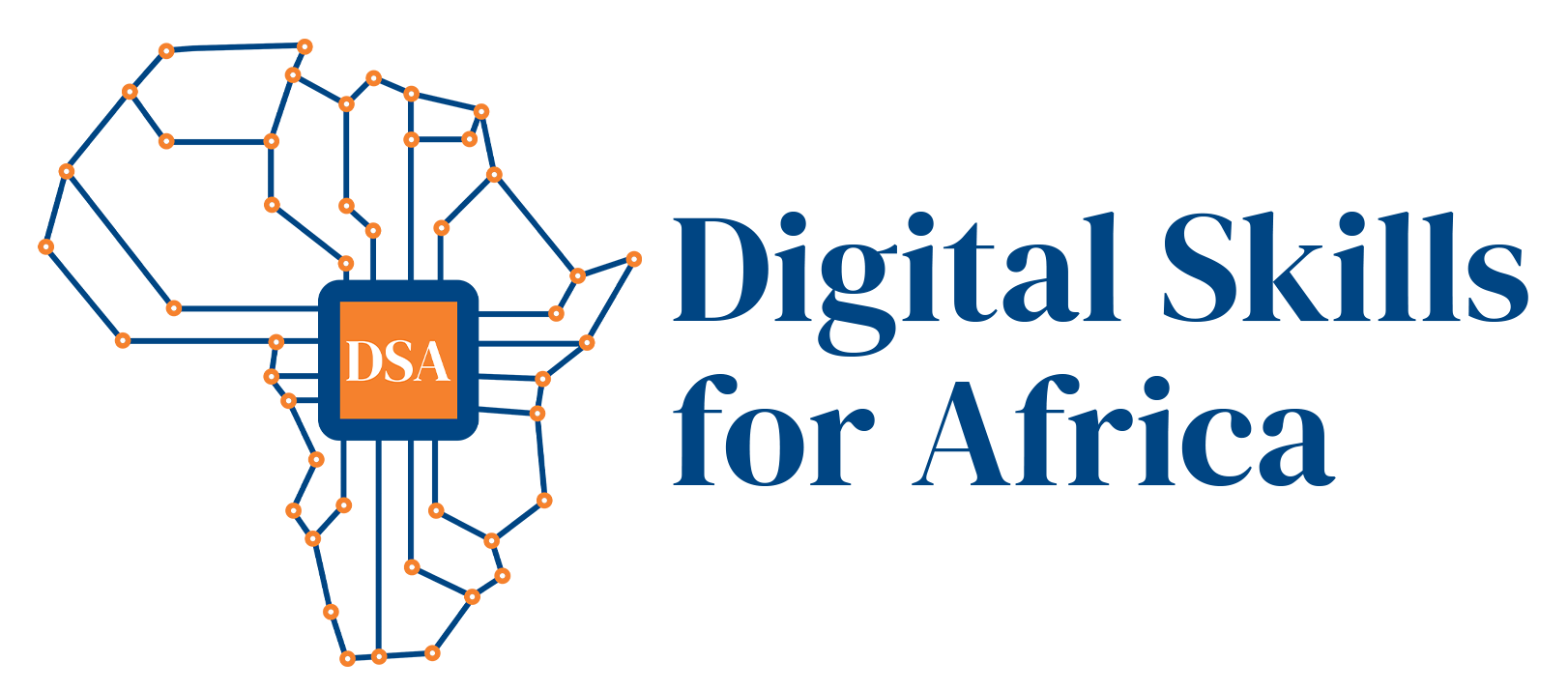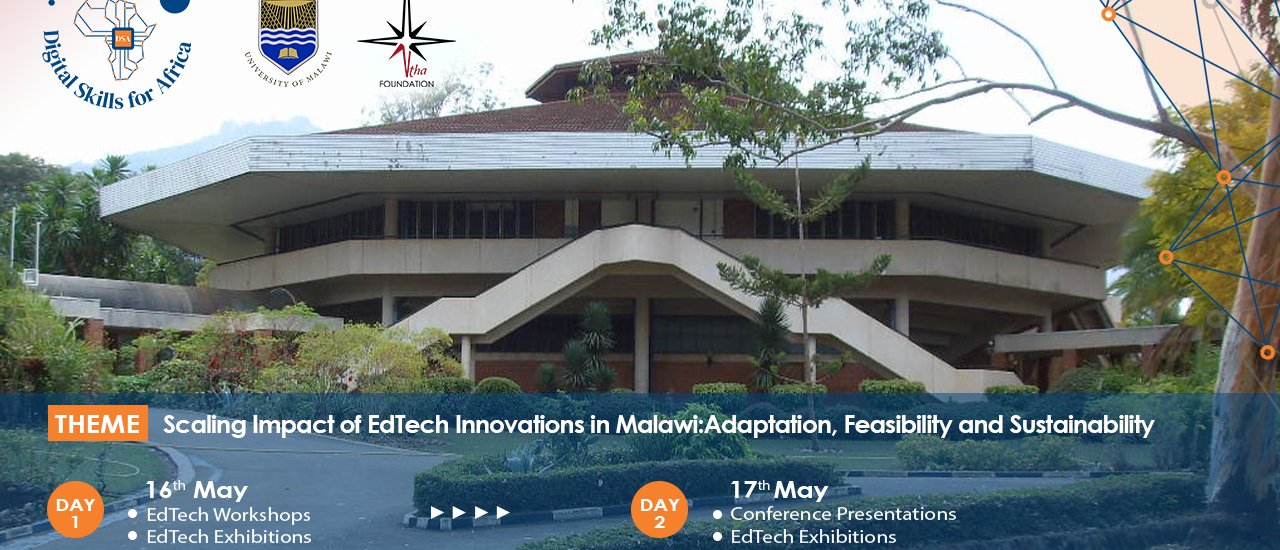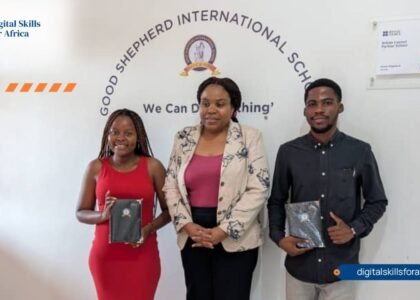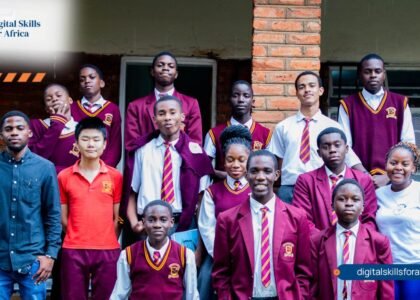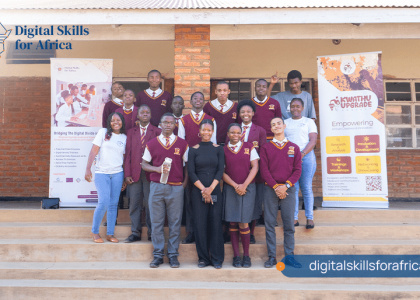The COVID-19 outbreak has stimulated increasing interest in digital technology integration into education. In Malawi, the aspiration to ‘turn schools into ICT centres’ is not new, as similar efforts date to the 1960s. While the nature and types of technologies introduced in schools have been changing, the rationales for introducing them have remained almost the same.
Three popular rationales are evident in Malawi’s efforts to digitize education. The first is that technology can improve teaching and learning. For example, research and programmes implemented by VSO in Malawi suggest that EdTech facilitates interactive and engaging multimedia learning experiences and fosters personalized and inclusive learning.
A related study by Imagine Worldwide in Malawi also showed that edtech can increase school attendance rates. Second, technology in schools can empower the next generation with the skills and knowledge they need to thrive in the digital economy. Proponents of this view suggest that all learners must be competent users of digital technology so that they are prepared for future jobs that are not yet known.
The Malawi Government recognizes the potential of digital education in realizing “ wealthy and self-reliant nation through provision of integrated and inclusive ICT, digital systems and life enhancing services” as envisioned in the MW2063. Third, it is claimed that technology will enhance access to education by all learners. For example, digital technology provides platforms for learning in open and distance learning.
On the other hand, although the above-highlighted rationales are appealing, and despite the emerging evidence on how EdTech can improve education in Malawi, some challenges persist. Among others, EdTech projects in Malawi have been relying on external aid and the private sector. For example, the Ministry of Education, World Bank, Airtel Malawi and UNICEF are some of the active players in the Connect a School Project. Related to this, most efforts in the development of digital education have tended to be enthusiastic and celebratory about what technology can or will do. This tendency can hide the potential harm of digital technology in schools.
CALL FOR PROPOSALS
The EdTech@UNIMA2024 conference is open to all, and it will engage with the above-highlighted issues with the aim of fostering dialogue from different perspectives. The conference is premised on the consideration that the current hullabaloo around digitizing education in Malawi, including the use of Artificial Intelligence, deserve further scrutiny. We invite proposals that explore scaling the impact of current edtech innovations at all levels of education in Malawi, especially considering issues of feasibility, adaptability and sustainability.
THEME: Scaling Impact of EdTech Innovations in Malawi: Adaptation, Feasibility and Sustainability
SUB-THEMES FOR CONFERENCE PRESENTATIONS
- Feasibility of edtech innovations in Malawi: This sub-theme focuses on what works/does not work when implementing EdTech innovations. What issues of feasibility, for example drivers and restraints, underly EdTech innovations in Malawi.
- Adaptation of edtech innovations in Malawi: Some EdTech innovations being implemented in Malawi were developed outside the country. How can such innovations be adapted in the context of Malawi? What is/would be considered as successful adaptation of the EdTech innovations?
- Sustainability of edtech innovations in Malawi: With most promising EdTech innovations still in infancy and relying on external Aid, what is/should be considered to ensure that the impact of edtech innovations is sustainable?
- Towards critical and theoretical understanding of Edtech in Malawi: This sub-theme is premised on the consideration that most of the current edtech research in Malawi is characterised by unquestioning advocacy of certain technologies. While we recognize that such advocacy facilitates the visibility of edtech innovations, overemphasizing the positive aspects of edtech risks obscuring the unintended effects of edtech on learning, teachers and students. Submissions to this sub-theme should focus on raising critical questions around the hype of edtech at various levels of education in Malawi.
KEY DATES AND OTHER INFORMATION
Submission of Papers and Proposals for Exhibitions: 15th February- 30th March 2024
Registration: 10th to 18th April 2024
Conference Dates: 16th-17th May 2024
Venue: University of Malawi Campus, Zomba
Registration fees (to cater for lunch and refreshments): MK40,000.00
GUIDELINES FOR PAPERS AND EXHIBITIONS
Proposals for Exhibitions
Individuals or groups of individuals interested in exhibiting their educational technologies are invited to submit proposals. The proposal must include details of the applicant(s), description of the technology and the instructional problem (s) that the technology addresses, and how the technology can be/is used for educational purposes. Where possible, the proposal must also show evidence of the technology’s influence on education (e.g. supporting materials in the form of students’ performance, engagement, or references from students and fellow academic members).
All proposals should be submitted to edtech@unima.ac.mw, copy angelinakalongola96@gmail.com.
Paper Presentations
Oral or poster presentations should include the following: title of presentation; author name (s) and affiliation; abstract (150 words); 3-5 keywords; contact (email and phone number); 5–8 pages of the paper, including: Introduction/study context, Theoretical or Conceptual Framework (if necessary), Literature review including significance of the study, Methodology, Results/findings, Discussion/Implications and References.
All papers should be submitted to edtech@unima.ac.mw, copy angelinakalongola96@gmail.com.
INQUIRIES
Dr. Foster Gondwe: +265 888123961 / fgondwe@ unima.ac.mw and Victor Gondwe victor@kwathucente.org
Work With Us:
Want to partner on or fund one of our programmes / initiatives? We are always open to collaborations and partnerships. Contact our Business Development Associate; Ms. Abigail Zingani via contact@kwathucentre.org, or give us a call(direct or WhatsApp) on +265991850749.
To keep up with the work of Digital Skills for Africa, our hubs under the Kwathu Kollective, our workshops, and our projects, follow us on social media:
